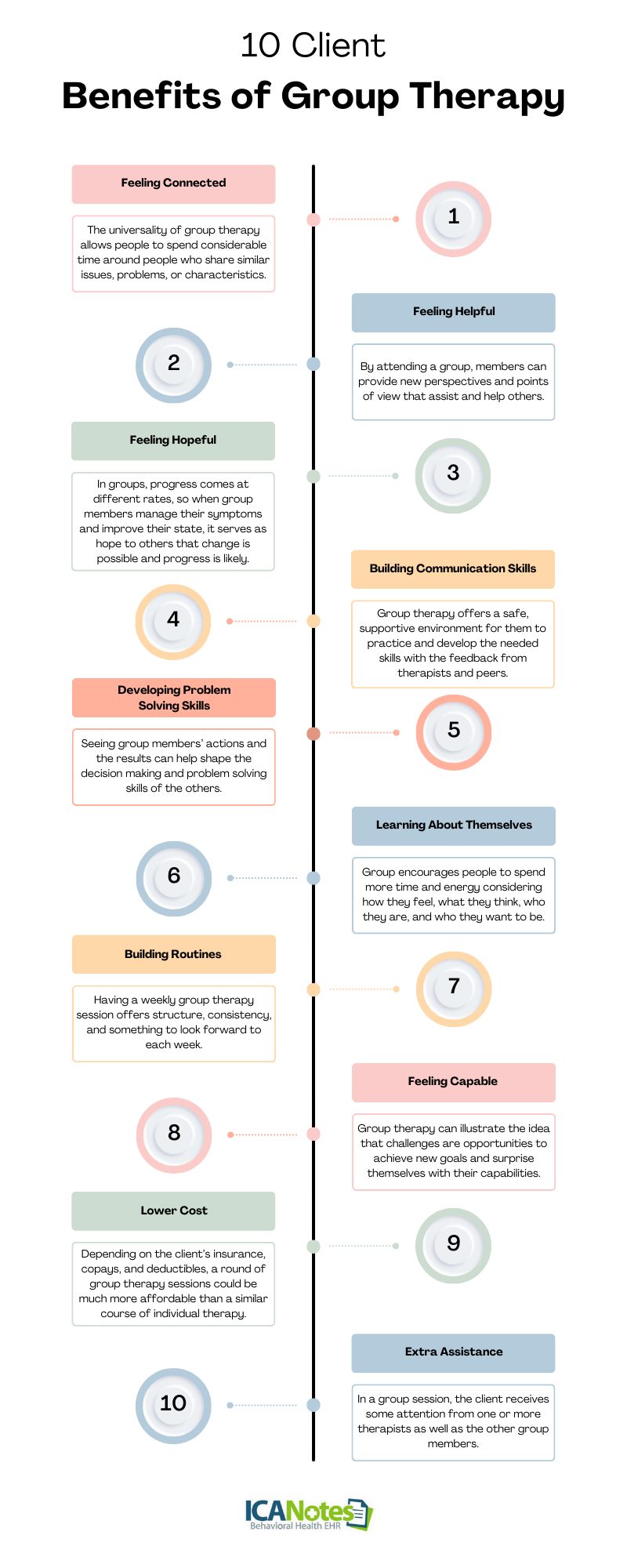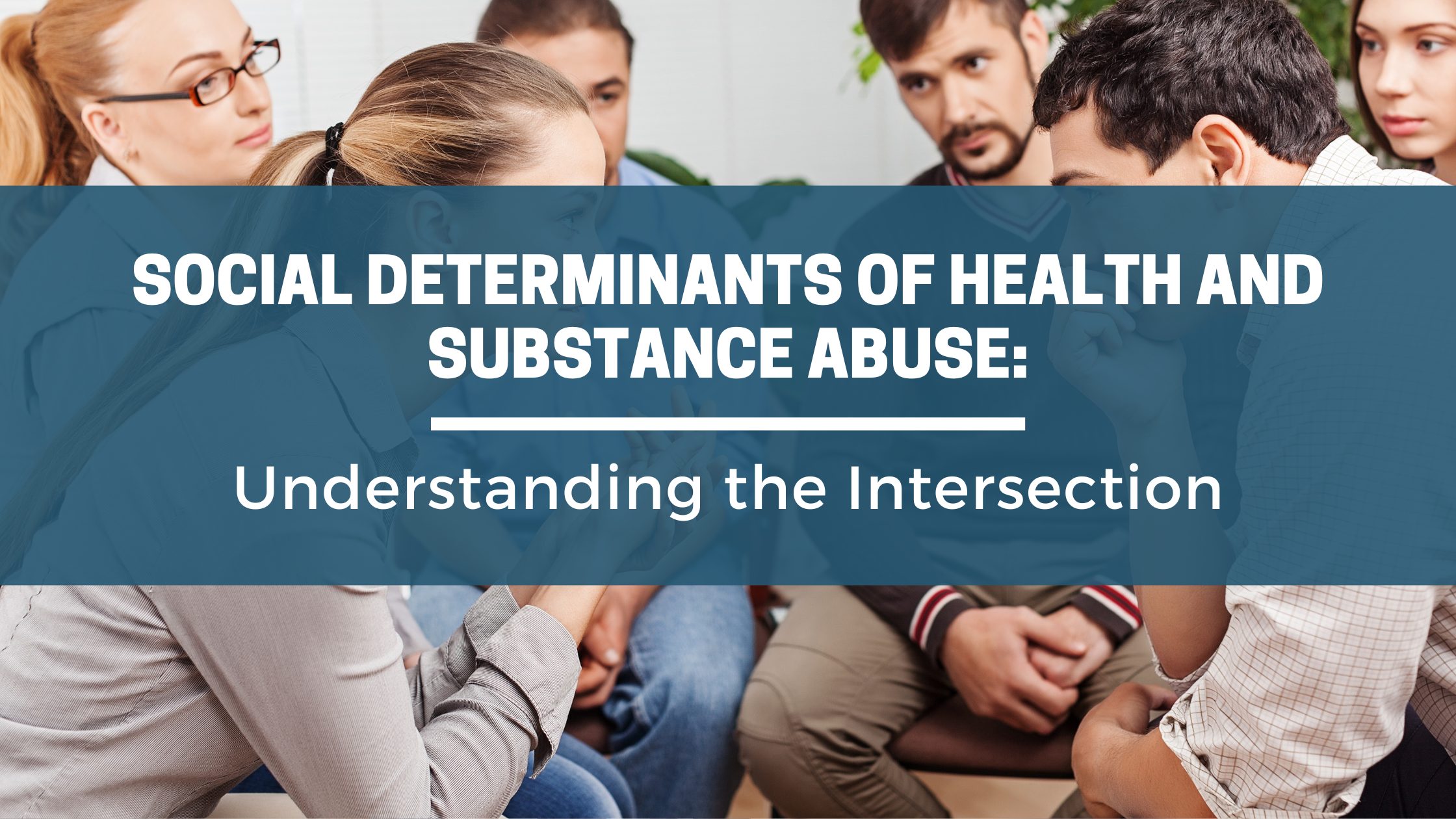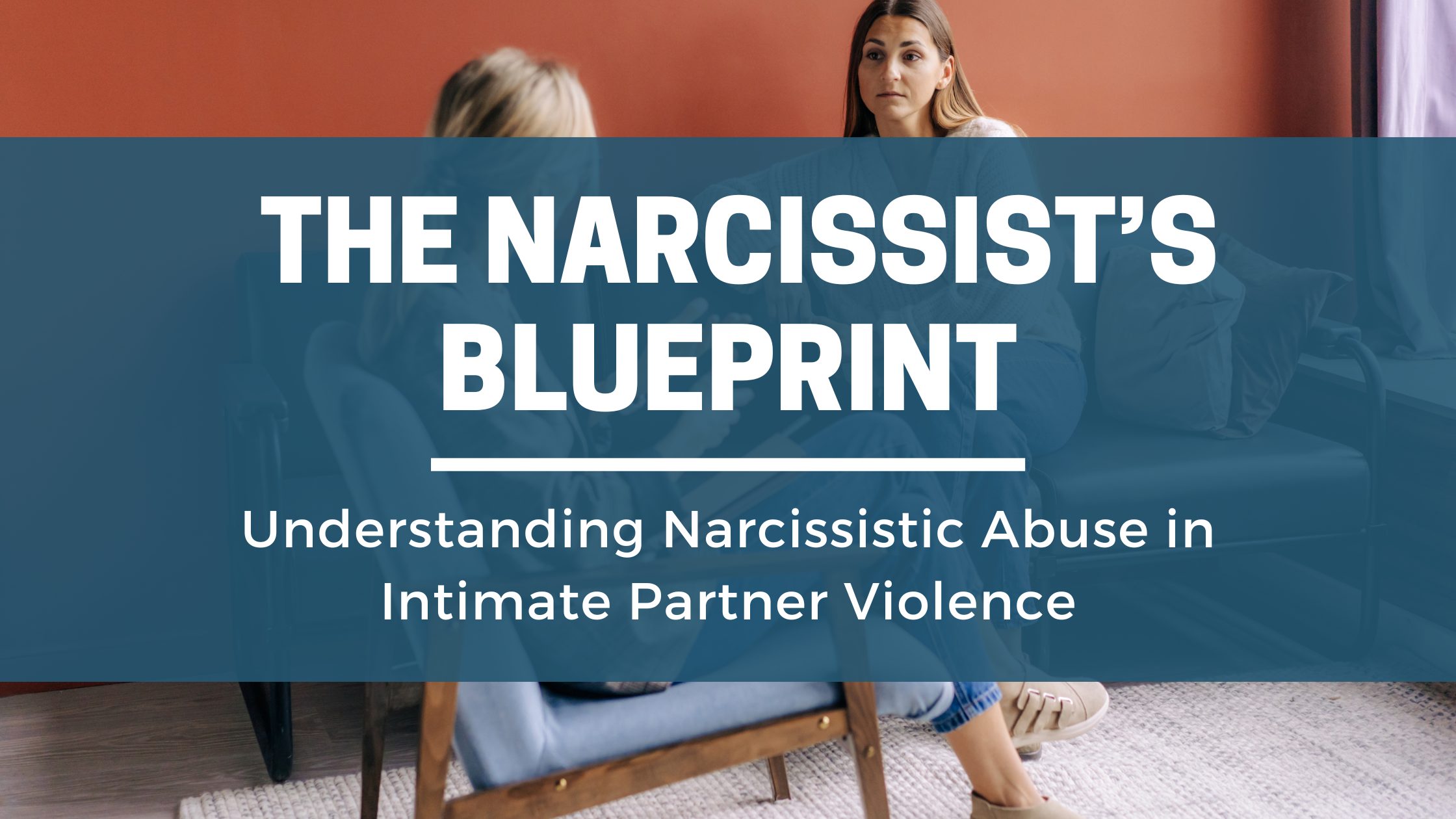
The Benefits of Group Therapy: Why More Therapists Should Start Groups
Group therapy is a highly beneficial, but often underutilized tool, for people with a range of mental health and medical health concerns. Getting people with a common condition or characteristic in the same place at the same time offers tremendous advantages, but too often therapists find themselves uninterested and undertrained to successfully start and maintain group therapy sessions.
Keep reading to better understand the benefits of group therapy and discover why more therapists should incorporate therapy groups into their weekly routine.
Risks and Benefits of Group Therapy Client Handout
Download this free handout for your group therapy clients.

Group Therapy Background
For more than 100 years, medical and mental health professionals have noted the effectiveness of group therapy, but the curative factors of group therapy were an accidental discovery. In the early 1900s, professionals who offered meetings for people sharing the same physical health issues found the emotional symptoms of the members improved as an unintended effect.(1)
Over the next decades, the findings were repeated in various venues with different populations. From criminal offenders and people with addictions to children with mental issues and veterans returning from World War II, the benefits of group therapy have been studied and known for generations.
10 Client Benefits of Group Therapy
The benefits of group therapy begin with the clients and members that participate. As long as they are appropriate for the treatment and consistent with attendance, people in therapy groups can expect benefits like:(2, 3)
1. Feeling Connected
The universality of group therapy allows people to spend considerable time around people who share similar issues, problems, or characteristics. Doing so offers a powerful sense of connection that replaces loneliness, isolation, and feeling different.
2. Feeling Helpful
People who attend groups may have felt like they have little to offer others, which contributes to a lack of purpose and fulfillment. By attending a group, members can provide new perspectives and points of view that assist and help others.
3. Feeling Hopeful
In groups, progress comes at different rates, so when group members manage their symptoms and improve their state, it serves as hope to others that change is possible and progress is likely. Being afforded hope is an invaluable tool that comes from group therapy.
4. Building Communication Skills
People often lack the communication skills needed to express their thoughts and feelings. Group therapy offers a safe, supportive environment for them to practice and develop the needed skills with the feedback from therapists and peers. Since listening is a huge part of the communication equation, paying attention to others’ needs will be taught as well.
5. Developing Problem Solving Skills
Sometimes when faced with problems, people remain stuck in a loop of unhelpful and unsuccessful choices. Seeing group members’ actions and the results can help shape the decision making and problem solving skills of the others. Additionally, each person can receive feedback about their action plan before they put it into motion.

6. Learning About Themselves
Today, there are plenty of opportunities for people to avoid, escape, and distraction from their thoughts, feelings, goals, and dreams. Instead of knowing themselves, too many people only focus on getting through the day. Group encourages people to spend more time and energy considering how they feel, what they think, who they are, and who they want to be.
7. Building Routines
Some people with mental health concerns may have a lot of unstructured time in their week, and long for routines. Having a weekly group therapy session offers structure, consistency, and something to look forward to each week. These routines can show clients the positives that come with action, even if it is uncomfortable or challenging at times.
8. Feeling Capable
Speaking of dealing with challenges, group members may struggle to feel comfortable or capable when facing adversity. They might shy away from obstacles and barriers to success, rather than being driven to tackle them. Group therapy can illustrate the idea that challenges are opportunities to achieve new goals and surprise themselves with their capabilities.
9. Lower Cost
On a practical note, group therapy typically costs less than individual sessions. Depending on the client’s insurance, copays, and deductibles, a round of group therapy sessions could be much more affordable than a similar course of individual therapy. With the extra money, clients can engage in a variety of self-care options that decrease their symptoms.
10. Extra Assistance
In an individual session, a client gets the full attention of one therapist. In a group session, the client receives some attention from one or more therapists as well as the other group members. With all of these points of view, the client could hear an impactful perspective from anyone in the room.
4 Therapist Benefits of Group Therapy
Clients are not the only ones who benefit from group therapy. When a professional is facilitating successful therapy groups, the therapist benefits from group therapy as well.
Ways that running therapy groups is beneficial to therapists include:
1. Groups are Effective
Therapists want to do good therapy, and using therapy groups as a way to improve client symptoms is highly effective. For a wide variety of mental health concerns, group therapy is as productive as individual therapy. Despite this efficacy, 95% of treatment is individual with only 5% involving group therapy.
2. Groups are Efficient
Therapy groups are incredibly efficient at effecting change. Where individual sessions focus on treating one person during the hour, a therapy group can help 10 clients. A therapist running two groups each week could double the number of clients assisted during the week, which is a great way to successfully manage long waitlists and staffing issues.
3. Groups can be Financially-Rewarding
Many therapists feel awkward or selfish for thinking about the financial benefit of their work, but it is perfectly normal to seek appropriate compensation for services. When therapists engage in more group work, they can bill more service hours during the day. Clients win while therapists win.
4. Makes Therapists Better
Any therapist who facilitates groups will tell you that conducting group sessions makes them a better therapist overall. By paying attention to and tending to the needs of 10 clients in the room expands a therapist’s abilities. At the same time, the therapist watches, listens, senses, feels, and responds to a room full of people. The feeling of accomplishment from a successful group session is unbeatable.
Final Thoughts
Clients and therapists need to be aware of the tremendous benefits of group therapy options as a way to reduce stress. Although people may be reluctant to join or facilitate a group, the hesitation is needless. With a little period of adjustment and plenty of support, group therapy is a great option for many.
Therapists concerned with documentation time following a group session should check out ICANotes features that make writing notes simple, straightforward, and stress-free. The ICANotes group therapy module streamlines the process of writing group therapy notes so that you only write the session remarks once, then quickly generate an individual note for each participant. The module also keeps the group therapy session roster and tracks attendance. Book a demo and one of our product experts will show you how it works and set you up with a fully HIPAA-compliant 30-day trial.
About the Author

Eric Patterson, MSCP, NCC, LPC
Eric Patterson, MSCP, NCC, LPC, is a professional counselor who has been working for over a decade to help children, adolescents, and adults in western Pennsylvania reach their goals and improve their well-being.
Along the way, Eric worked as a collaborating investigator for the field trials of the DSM-5 and completed an agreement to provide mental health treatment to underserved communities with the National Health Service Corp.
Sources
- Ezhumalai, S., et al. (2018). Group interventions. Indian Journal of Psychiatry.
- Malhotra, A. and Baker, J. (2022). Group Therapy. StatPearls.
- American Group Psychotherapy Association. (n.d.). What is Group Psychotherapy?
- American Psychological Association. (2023). Group Therapist is as Effective as Individual Therapy, and More Efficient. Here’s How to Do It Successfully.










